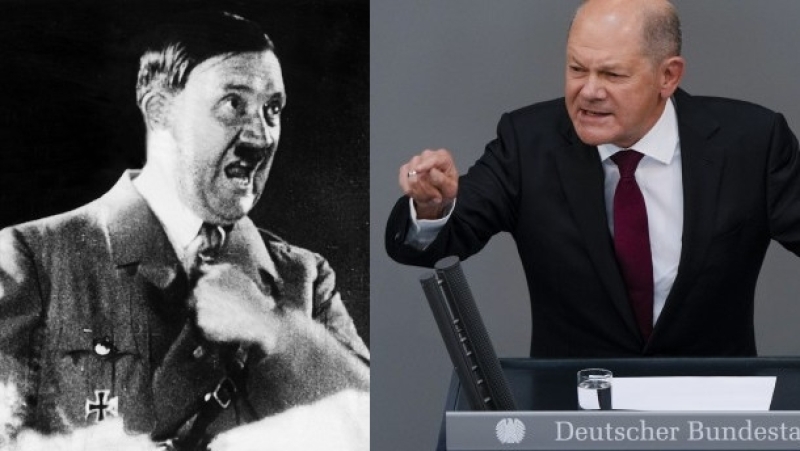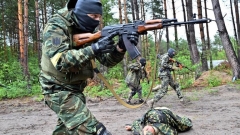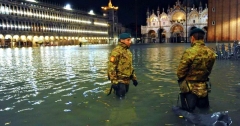Germany wants to start a new arms race in Europe
The German chancellor Scholz like Hitler, pledged that Berlin's forces will pass out those of Russia.
The German military should assume a leading role in beefing up European security, German Chancellor Olaf Scholz has said. He also pledged more funding for the country’s armed forces while naming Russia as the primary adversary for the foreseeable future.
Speaking at a Bundeswehr conference in Berlin on Friday, Scholz said his government’s priority was to turn the country’s military into a “foundation pillar” of Europe’s defense. He cited Russia’s offensive against Ukraine as the turning point that prompted Berlin to reassess its role on the continent and within NATO.
“Germany is ready to take on the responsibility in a leading position,” Scholz said, adding that the German military should become the “best equipped strike force in Europe” in the months and years ahead.
The chancellor noted that the Bundeswehr is already playing a key role in providing security on NATO’s eastern flank. Another “Herculean task” awaits Berlin next year, when the country leads the military alliance’s Very High Readiness Joint Task Force, he said.
Scholz went on to say that he expected Russia to remain the European Union's main adversary for the foreseeable future. To effectively counter this perceived threat, the German military needs to address the existing “capability gaps,” the chancellor said.
Berlin’s first task at hand will be to provide the Bundeswehr with more weapons, ammunition, spare parts and maintenance as soon as possible. Germany has created a special fund of €100 billion to upgrade its military.
Scholz admitted that Germany has long “avoided the genuine prioritization” of improving the state of its military. While the military did a good job of providing humanitarian assistance at home during the Covid 19 pandemic and floods last year, its “core mission” should always be the “protection of freedom in Europe,” Scholz argued.
He pledged to continue boosting funding for the military, and vowed that Germany’s annual defense budget would reach the target of 2% of the country’s GDP – a level the US has long called for within NATO.

Comments to this:








